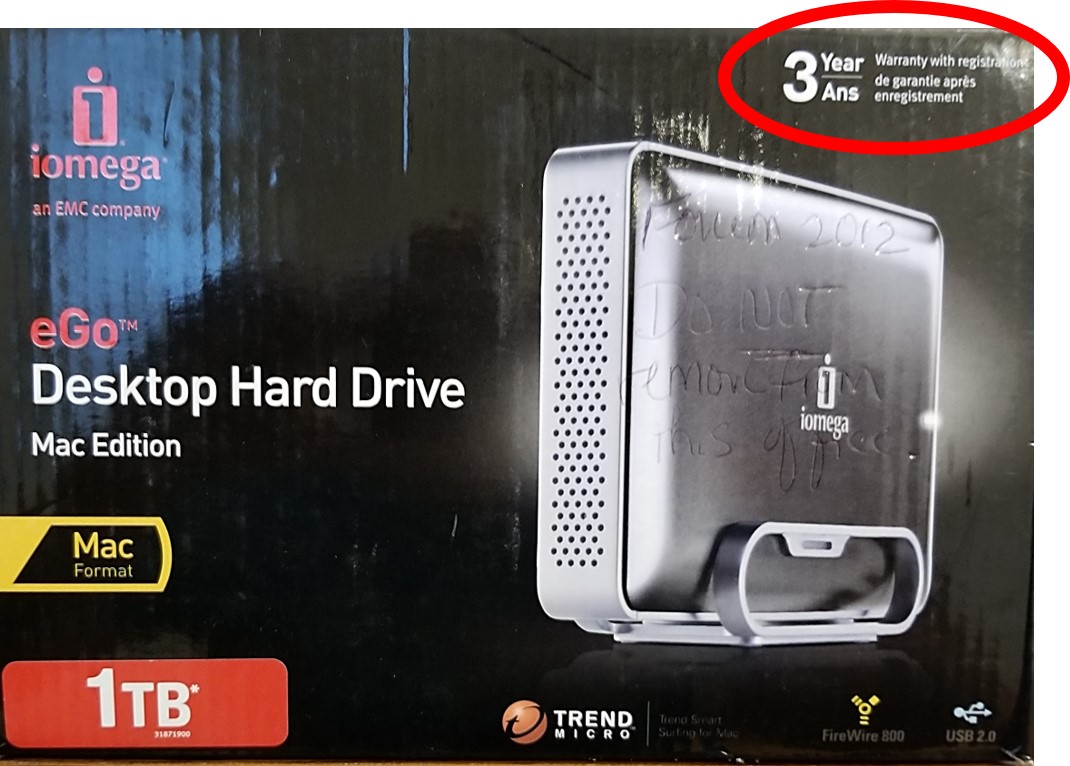- Home
- Hard Drives
- Cheap Hard Drives
Cheap Hard Drives
Cheap hard drives are attractive because of their very low cost, but often these discount hard drives are of substandard quality and will likely fail earlier than better quality or brand name hard disk drives.
Hard disk drives are no different from any other product when it comes to quality – you get what you pay for. This rule does not always apply as some expensive products can underperform and some cheaper products can perform quite well. However, on average, cheaper products do not last as long or perform as well as products that are more expensive.
With hard drives, the rule may be more relevant because of the precise nature of the technology that goes into producing a hard drive and the amount of work that a hard drive performs daily. Cutting corners to reduce costs or using inferior materials will cause significant problems or complete failure to occur when using a discount hard drive.
Failure Pattern of Hard Drives
Hard drives fail according to a specific pattern, which is called the bathtub curve. Of all the hard drive failures that occur, a significant number of them fail early in their life. This early period of use is generally the first year and is a result of poor manufacturing or use of inferior materials.
Next, comes a period where hard disk drives perform as expected with no problems and failure rates are low. This useful life period of the hard drive is from 2 to 5 years on average. Following this period, the number of failures starts to rise as the mechanical components reach the end of their service life.
When hard drives are approaching the 5-year mark or are older than five years, one should consider replacement, as even the once very reliable hard drives may fail suddenly. Note that it is also not unusual that a small number of hard drives will function well beyond five years of age.
The main problem with using cheap hard drives is that the risk of losing information stored on the hard drive is quite high from the onset. Cheap hard drives will fail in very large numbers in the initial period of the hard drive lifetime curve and few will make it beyond this phase. The result is hard drive replacement in a short amount of time, making the initial savings irrelevant.
With the current cost of high capacity brand name hard drives being low, there is no reason to buy inferior quality discount hard drives and putting your stored information at risk. When looking at cost per GB, even the purchase of more expensive good quality hard drives is still better than other types of storage media and thus, there is no reason to buy cheap.
Hard Drive Warranties
The length of warranty offered by the manufacturer often indicates the quality of hard drives. Cheap hard drives usually have short warranties and are generally in the 6 months to 1-year range. Better quality hard disk drives have warranties of 3 to 5 years. Manufacturers do not want products returned and therefore, the long warranty length is a reliable sign that the quality of the product is very good. However, the only problem with warranties is that if a problem occurs, whether with a discount hard drive or quality hard drive, the only thing replaced is the hard drive.

The data stored on the hard drive will not and cannot be replaced by the manufacturer. Back-ups are critical, regardless of whether using a cheap hard drive or a more expensive one.
Cheap Hard Drives
Many of the cheaper hard drives available have undergone refurbishing. Refurbished may refer to previously used drives and therefore, have some wear and tear on them. Although these drives may function well when first purchased, they are likely to fail sooner than expected. Refurbished can also refer to the hard disk having some issue in the past, either with the mechanical components or other elements. After the correction of these issues, the drives are sold.
These types of cheap hard drives are very risky and one should avoid purchasing them. Finally, a refurbished hard drive may be simply a returned product that is perfectly fine and like new. Nevertheless, the seller does not usually indicate the type of refurbishment that has taken place and so the buyer should be aware of the potential issues with buying these cheap hard drives.